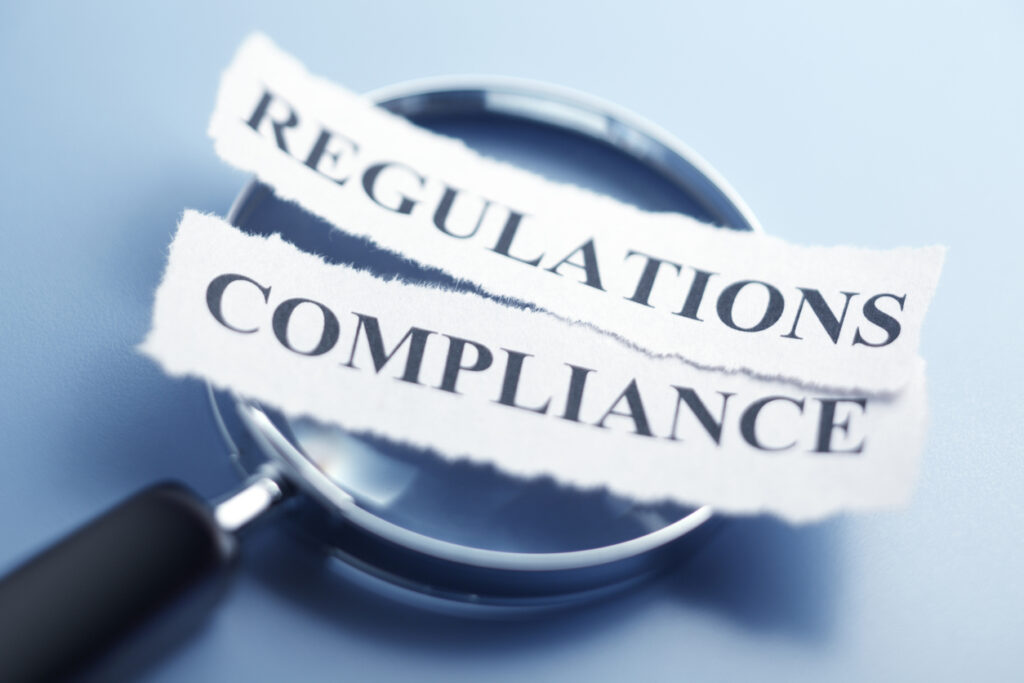How Do I Prepare My Business for Sale?
Building a successful business is extremely hard work, but it’s also very rewarding. Seeing your fledgling small business blossom from a startup to a successful company makes the long hours you put in well worth the effort. But at some point, there may come a time when you decide running your business is no longer for you, and you may start looking into selling it. Regardless of your reasons for selling your business, it is one of the largest and most important transactions you’ll ever enter into in your life, and it’s important to put in the work to ensure you receive the proper compensation for all the years of hard work you’ve invested in building your company.
Selling a small business is a complex process that requires meticulous planning and a great deal of work to ensure the transaction goes smoothly and maximizes your return. On average, it takes roughly 10-12 months to complete the business sale process, and the preparation work should start way before this timeframe begins. It’s important to work with a small business lawyer who has extensive experience handling the sale of a business and can guide you through the process to ensure every step is handled properly.
Whenever you’re considering selling a business, it’s critical to understand the steps involved. The following guide will help you build a solid plan for preparing your business for sale.

Begin Preparing Well in Advance
The sale of a business can potentially take a long time, but the process starts long before you actually seek out potential buyers. The more time you give yourself to prepare for this important transaction, the more likely you are to achieve your desired outcome for the sale. Preparing well in advance gives you time to get a firm grasp on your business’ finances, identify ways to drive new revenue and optimize your profitability prior to the sale.
You’ll also need to assemble a team to assist with the sale (more on this later). It can take time to build the right team of advisors, and it’s important to start cultivating these relationships well before you intend to sell. Waiting too long to begin preparing your business for sale can complicate the process and make it challenging to attract the right buyer for your goals.
Define Your Goals and Timing
The first step of the planning process should focus on clarifying your goals for the sale and the ideal timing to sell. If you have partners, this process should be done collaboratively with all stakeholders in the business.
First, take some time to identify what you’d like to achieve from the sale of your business. Regardless of your reason for selling (retirement, lifestyle change, family or health reasons, etc.), understanding your goals for the process will ultimately play a critical role making the transaction successful. While every small business owner has a different set of goals and priorities for a sale, some of the most common include:
- Maximizing the sale price
- Safeguarding your employees
- Ensuring a smooth transition
- Having a quick and clean transaction
- Achieving a favorable deal structure
- Preserving the company’s reputation and brand image
When listing your goals, make sure to prioritize them. This can be a difficult task to work through, but it’s critical to identify what you consider most important. It’s often challenging to achieve all of your goals during the sale of a business, as the negotiation process will require give and take so that the buyer is able to achieve their goals as well. By outlining your priorities in advance, you’ll be able to focus on finding a buyer that allows you to achieve the goals that matter most to you.
You’ll also want to identify a timeline for your sale. You’ll have a much better chance of achieving your desired outcome if you sell at a time when your business is healthy, profits are robust and revenue is growing each year. These attributes will help you increase buyer interest and find the right fit to take over your business.
If your business is thriving and financials are all in good shape, you may be able to expedite your timeline if a quicker sale is a priority for you. However, if your business currently lacks strong financials and a vibrant customer base, you should establish a timeline that gives you an opportunity to improve the standing of your business before you sell it.
Assemble Your Team
The sale of a business is an extremely complex process that requires extensive expertise from a variety of professionals. You’ll need to hire a skilled team of advisors to assist as you prepare your business for sale. To ensure the smoothest and most successful transaction possible, you’ll want to assemble your team at the start of the process to ensure every phase is handled properly.
Your team should include:
- Small Business Attorney – Your business lawyer will oversee all legal aspects of the deal. This includes drafting the sale agreement, navigating intellectual property issues, handling contract negotiations, and addressing all compliance and regulatory requirements.
- Business Broker – Your business broker will be responsible for managing a variety of aspects associated with the transaction, including the business valuation, sourcing potential buyers, negotiating transaction terms and overseeing the sale process.
- Tax Advisor – There are a variety of tax considerations associated with the sale of a business, making a tax advisor a critical component of your team. Your tax advisor will be able to help you structure the transaction in a way that minimizes your tax liability while ensuring the terms are acceptable to the buyer.
- Accountant – Your accountant will prepare and review all financial statements, ensure your books are clean and ready for due diligence efforts and provide the financial transparency potential buyers will require.
- Financial Advisor – The sale of a business typically generates a large sum of money for the seller. You’ll need a seasoned financial advisor who can assist with your personal financial planning after the sale is complete, ensuring your profits are invested wisely.
Get a Business Valuation
Before you can sell your business, you need to understand what it is worth. Getting a professional business valuation will help you determine the realistic value of your business, as well as its financial standing, market position, and tangible strengths and weaknesses. This information will help you set the proper asking price for your business and attract qualified buyers who can help you maximize your return.
Some of the factors used to determine the value of your business include:
- Financial statements
- Profit margins and revenue growth
- Recent sales comps of similar companies
- The value of tangible and intangible assets such as real estate, inventory, equipment, brand equity and intellectual property
- Debts and liabilities

Clean Up Your Financials and Operations
Before talking to prospective buyers, you’ll need to make sure your financial information is properly organized and up to date. As a general rule, you should have at least three years’ worth of financial data for buyers to review. The more organized and detailed your financial statements are, the easier it will be for buyers to evaluate the financial health of your business.
You’ll want to make sure all financial records, including income statements, cash flow projections and balance sheets are accurate. Some of the documents you’ll want to prepare for buyers include:
- Earnings before interest, taxes, depreciation and amortization (EBITDA)
- Growth initiatives
- Customer retention analytics
- Balance sheets
During this process, your accounting team will help you identify potential questions that buyers may have regarding your company’s financial health and dig deeper into any potential issues that may be a cause for concern during the sales process. By taking the time to clean up your financials, you can create a compelling narrative about the numbers and position your business in the best possible light.
You’ll also need to clean up your operations to ensure they’re as streamlined as possible when buyers start looking into your business. This typically involves:
- Identifying and addressing any inefficiencies, non-essential costs and outstanding liabilities
- Documenting your core business processes in a clear, concise manner
- Updating information about employees and their roles
- Fixing or replacing any old or broken equipment
- Making automation and scalability enhancements to your processes
Perform Legal and Compliance Reviews
Any potential buyer will want to perform some due diligence prior to purchasing your business. As the seller, it’s important for you to perform all necessary legal and compliance reviews and prepare these diligence documents for review. If any issues arise during the review process, you’ll need to resolve them prior to the sale.
Your small business attorney will help you perform all legal compliance reviews, including:
- Reviewing all vendor contracts, customer contracts, license agreements and other contracts that might impact the sale
- Ensuring all business permits and licenses are current
- Making sure all intellectual property rights, including patents, trademarks and copyrights are documented and filed correctly
- Drafting any nondisclosure agreements and noncompete agreements that may be needed as part of the sale
You’ll also need to work with your tax professional to ensure you’ve properly documented your tax status and are in compliance with all tax regulations. If there are any available tax incentives or outstanding tax liabilities associated with your business, you’ll need to provide these to prospective buyers as well.

Develop a Marketing Strategy and Search for Buyers
The final step in the process is to develop a marketing strategy that highlights the value your business brings, including its:
- Growth potential
- Unique strengths
- Competitive position within your market
Create detailed marketing materials such as pitch decks, business prospectus and buyer packages. These materials should create a compelling narrative that makes your business attractive to buyers.
Next, begin reaching out to prospects who may be interested in buying your business. Often, it’s helpful to work with a business broker who can help you source potential buyers and handle the marketing process for you.
Elizabeth Lewis Can Help Sell Your Business
The complexities associated with selling a business make it critical to have the proper legal representation throughout the entire process. At the Law Office of E.C. Lewis, we have you covered.
Elizabeth Lewis is a small business lawyer with over 15 years of experience helping Colorado business owners sell their company. She can handle all legal aspects of the transaction, ensuring these important details are addressed properly. Elizabeth provides highly personalized representation and will make sure your rights and interests are protected throughout the sales process. Her keen eye for detail will ensure a thorough diligence process that identifies and resolves any potential compliance issues before they’re brought to the attention of a buyer.
Contact us today to schedule a consultation. Elizabeth Lewis serves business owners in Denver and throughout Colorado and also North Carolina.

